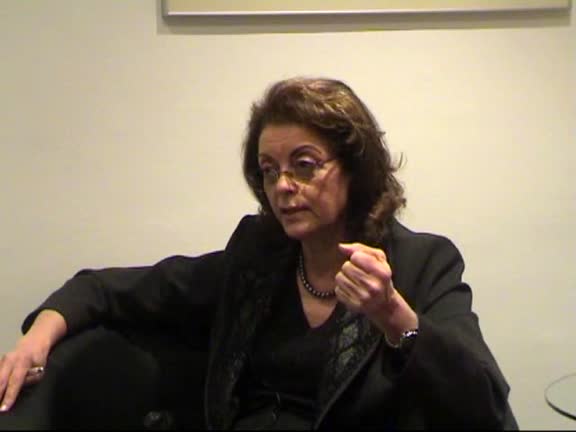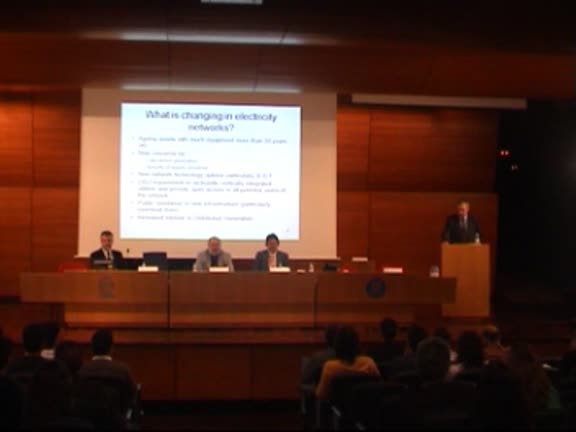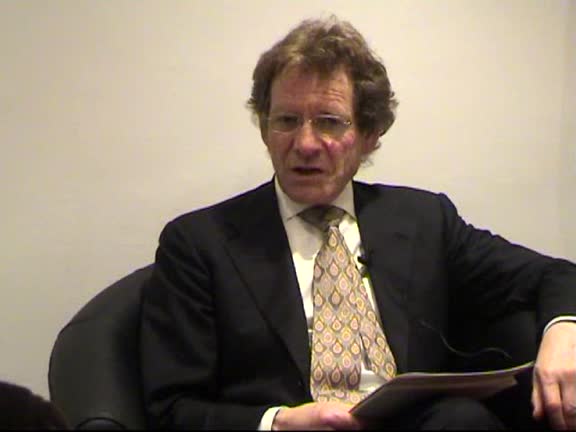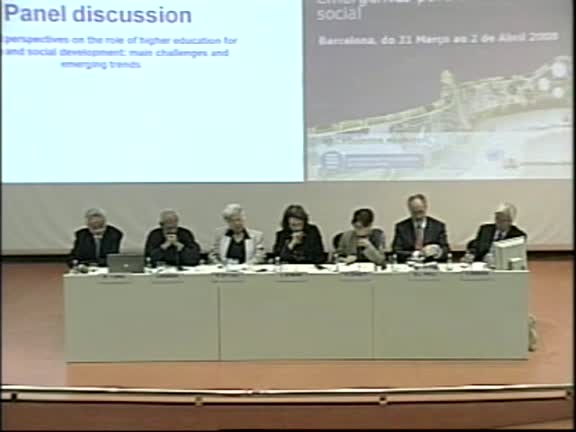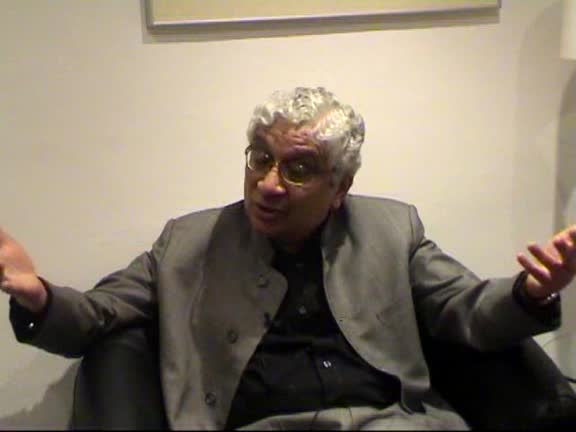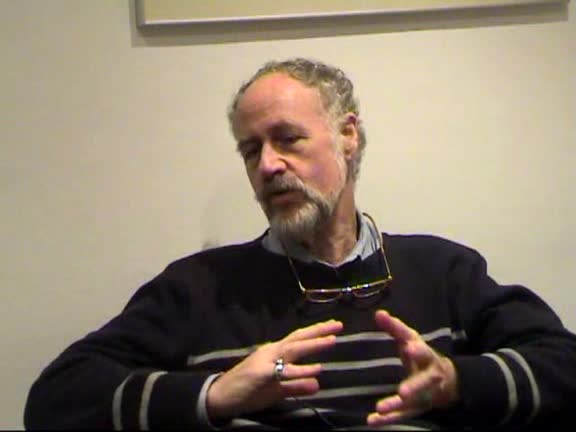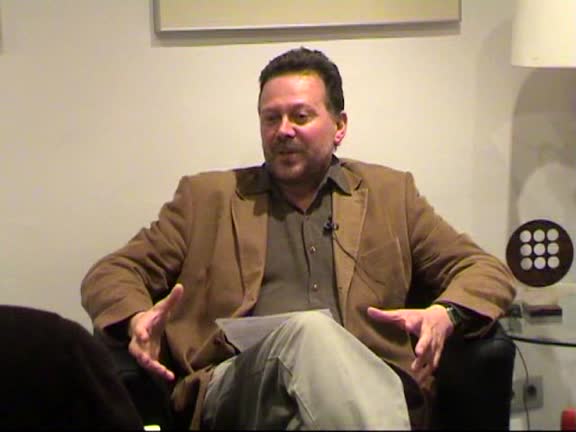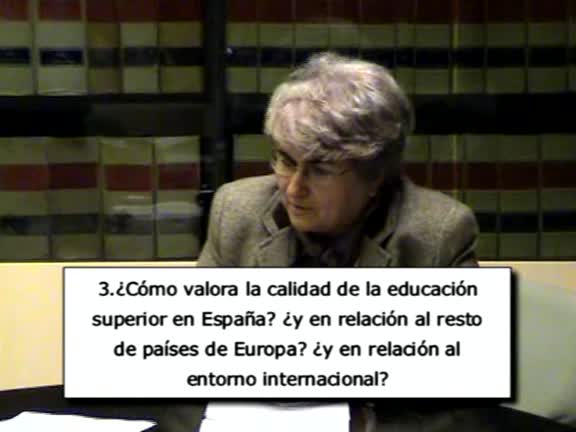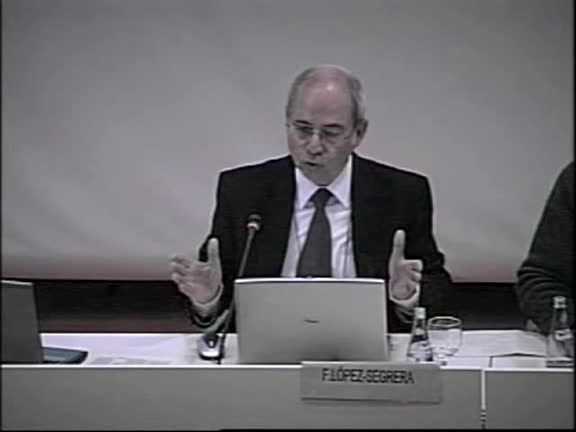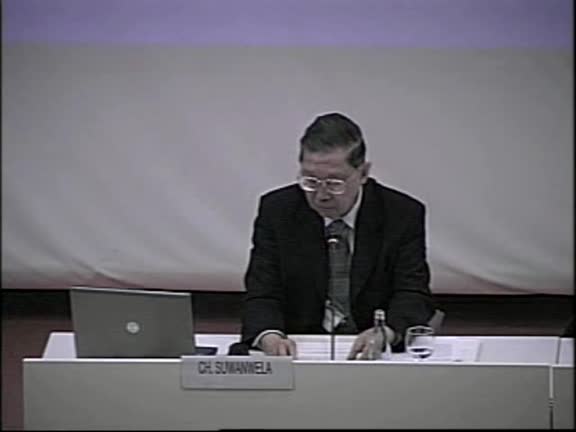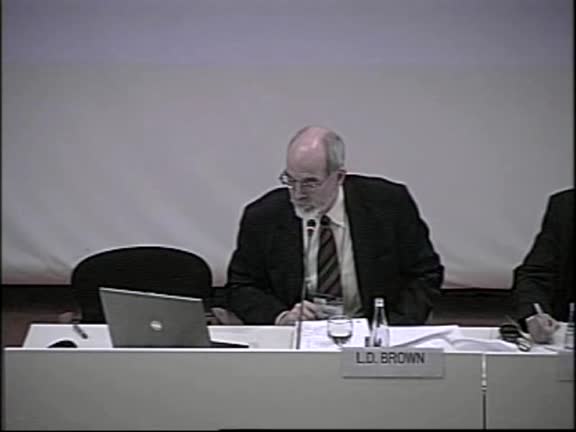Objectes multimèdia amb l’etiqueta: Ensenyament i aprenentatge
Resultats de la cerca
Interview with Aziza Bennani
Accés obert
20 d’oct. 2008
The Ambassador and Permanent Delegate of Morocco at UNESCO, Aziza Bennani, talked with GUNI about the importance to promote common values between the different societies. The former Secretary of State for Culture of Morocco considers that higher education must reconsider some of its aspects to promote that its students are capable of dialoguing in culturally different environments.
Cerimònia d'inauguració del curs 2008-2009
Accés obert
20 d’oct. 2008
S'inclouen els següents actes:
-Benvinguda i Salutació del Sr. Pere Pascual Gainza, director del Centre de
Formació Interdisciplinària Superior.
- Lliurament de les acreditacions als nous estudiants del Centre de Formació
Interdisciplinària Superior.
- Lliurament dels diplomes als estudiants que han obtingut el títol propi
d'Enginyeria Interdisciplinària Superior de la UPC.
- Conferència a càrrec del Sr. Nicholas Jenkins, Professor of Renewable Energy at
Cardiff University, titulada “Green Electricity Networks”
- Cloenda de l'acte a càrrec de l'Excm. Sr. Miquel Barceló Garcia,Comissionat pel
Desenvolupament Sostenible de la Universitat Politècnica de Catalunya.
-Benvinguda i Salutació del Sr. Pere Pascual Gainza, director del Centre de
Formació Interdisciplinària Superior.
- Lliurament de les acreditacions als nous estudiants del Centre de Formació
Interdisciplinària Superior.
- Lliurament dels diplomes als estudiants que han obtingut el títol propi
d'Enginyeria Interdisciplinària Superior de la UPC.
- Conferència a càrrec del Sr. Nicholas Jenkins, Professor of Renewable Energy at
Cardiff University, titulada “Green Electricity Networks”
- Cloenda de l'acte a càrrec de l'Excm. Sr. Miquel Barceló Garcia,Comissionat pel
Desenvolupament Sostenible de la Universitat Politècnica de Catalunya.
Interview with Konrad Osterwalder
Accés obert
1 de set. 2008
The Rector of the United Nations University (UNU), Professor Konrad Osterwalder, talked with GUNI about the new approaches of UNU to strengthen developed and developing countries’ higher education and research and how to address issues such as globalisation and mass higher education.
Interview with Deepak Nayyar
Accés obert
1 de jul. 2008
Professor of Economics at the Jawaharlal Nehru University, New Delhi, India, Deepak Nayyar, talked with GUNI about the dangers and the opportunities created by markets and globalization in terms of their effects on values in higher education and also on the higher education system. He explained the demand for higher education in China and India, about how these countries have to act regarding the internationalisation of education and the global economy.
Interview with Budd Hall
Accés obert
1 de jul. 2008
The Director of the Office of Community-Based Research and Senior Fellow in the Centre for Global Studies (University of Victoria, Canada), Budd Hall, talked with GUNI about the new challenges for higher education in North America, such as equity, distribution of resources, globalization or sustainability. Prof. Hall also considers very important to engage universities with their local community, but without forgetting a global point of view. In this sense, universities have to provide students theoretical and practical knowledge but also skills for them to be active citizens in the interconnected global society.
Interview with Peter Taylor
Accés obert
9 de maig 2008
Peter Taylor, research fellow and leader of the Participation, Power and Social Change Team of the Institute of Development Studies (University of Sussex), talked about the third volume of GUNI’s report Higher Education in the World, of which he is guest editor. He says that in order to be able to face the complex challenges of today’s world, higher education should build curricula on issues of social change and human and social development.
He participated in the roundtable on Preparing the new generation – the educative purpose and higher education curricula for human and social development of the 4th International Barcelona Conference on Higher Education "Higher Education: New Challenges and Emerging Roles for Human and Social Development" held last April.
He participated in the roundtable on Preparing the new generation – the educative purpose and higher education curricula for human and social development of the 4th International Barcelona Conference on Higher Education "Higher Education: New Challenges and Emerging Roles for Human and Social Development" held last April.
Interview with Gemma Rauret i Dalmau
Accés obert
29 d’abr. 2008
Interview with Gemma Rauret: European Higher Education Area, Quality and Accreditation
“The arrival of the European Higher Education Area will have very significant implications for the measures and practices of quality assessment and accreditation in Spain and in Europe” says Gemma Rauret, director of the Spanish National Agency for Quality Assurance and Accreditation (ANECA), spoke to us of the challenges that must be faced in the years ahead by the Spanish higher education system within the European Higher Education Area. She also spoke of the role that ANECA will play in this context and the strategy it will employ.
“The arrival of the European Higher Education Area will have very significant implications for the measures and practices of quality assessment and accreditation in Spain and in Europe” says Gemma Rauret, director of the Spanish National Agency for Quality Assurance and Accreditation (ANECA), spoke to us of the challenges that must be faced in the years ahead by the Spanish higher education system within the European Higher Education Area. She also spoke of the role that ANECA will play in this context and the strategy it will employ.
The political and social contribution of research: what knowledge for what society?
Accés obert
1 d’abr. 2008


![Acte de graduació de la promoció 2007-08 [3/3]](/uploads/pic/series/603cca2afde9b8357e4e4e67/video/603d33fcfde9b8363c5c9b34/210301225159.jpg)
